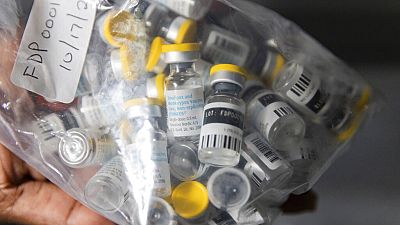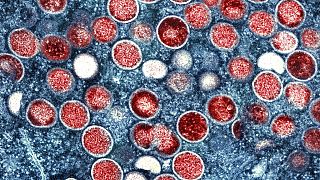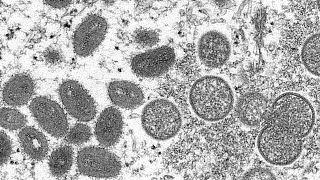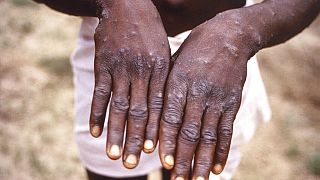monkeypox
With monkeypox cases subsiding in Europe and parts of North America, many scientists say now is the time to prioritize stopping the virus in Africa.
In July, the U.N. health agency designated monkeypox as a global emergency and appealed to the world to support African countries so that the catastrophic vaccine inequity that plagued the outbreak of COVID-19 wouldn't be repeated.
However, the global spike in attention has had little impact on the continent. No rich countries have shared vaccines or treatments with Africa, and some experts fear interest may soon evaporate.
"Nothing has changed for us here, the focus is all on monkeypox in the West," said Placide Mbala, a virologist who directs the global health research department at Congo's Institute of Biomedical Research.
"The countries in Africa where monkeypox is endemic are still in the same situation we have always been, with weak resources for surveillance, diagnostics, and even the care of patients," he said.
Monkeypox has sickened people in parts of West and Central Africa since the 1970s, but it wasn't until the disease triggered unusual outbreaks in Europe and North America that public health officials even thought to use vaccines.
As rich countries rushed to buy nearly all the world's supply of the most advanced shot against monkeypox, the World Health Organization said in June that it would create a vaccine-sharing mechanism to help needy countries get doses.
So far, that hasn't happened.
"Africa is still not benefiting from either monkeypox vaccines or the antiviral treatments," said Dr. Matshidiso Moeti, WHO's Africa director, adding that only small amounts have been available for research purposes.
Since 2000, Africa has reported about 1,000 to 2,000 suspected monkeypox cases every year. So far this year, the Africa Centers for Disease Control and Prevention have identified about 3,000 suspected infections, including more than 100 deaths.
In recent weeks, monkeypox cases globally have fallen by more than a quarter, including by 55% in Europe, according to WHO.
Dr. Ifedayo Adetifa, head of the Nigeria Center for Disease Control, said the lack of help for Africa was reminiscent of the inequity seen during COVID-19.
"Everybody looked after their (own) problem and left everybody else," he said. Adetifa lamented that monkeypox outbreaks in Africa never got the international attention that might have prevented the virus from spreading globally.
Rich countries have stretched their vaccine supplies by using a fifth of the regular dose, but none have expressed interest in helping Africa. WHO's regional office for the Americas recently announced it had struck a deal to obtain 100,000 monkeypox doses that will start being delivered to countries in Latin America and the Caribbean within weeks. But no similar agreements have been reached for Africa.














01:05
Study finds millions of children at risk as global vaccine rates fall
01:29
US medication safety agency approves biannual preventive HIV shot
Go to video
Ivory Coast announces cholera outbreak after 7 deaths
01:02
As cholera cases surge, African leaders urge local production of vaccine
00:52
Bill Gates says most of his $200 billion fortune will go to Africa over next 20 years
Go to video
Conflict and disease put a strain on South Sudan's fragile healthcare system